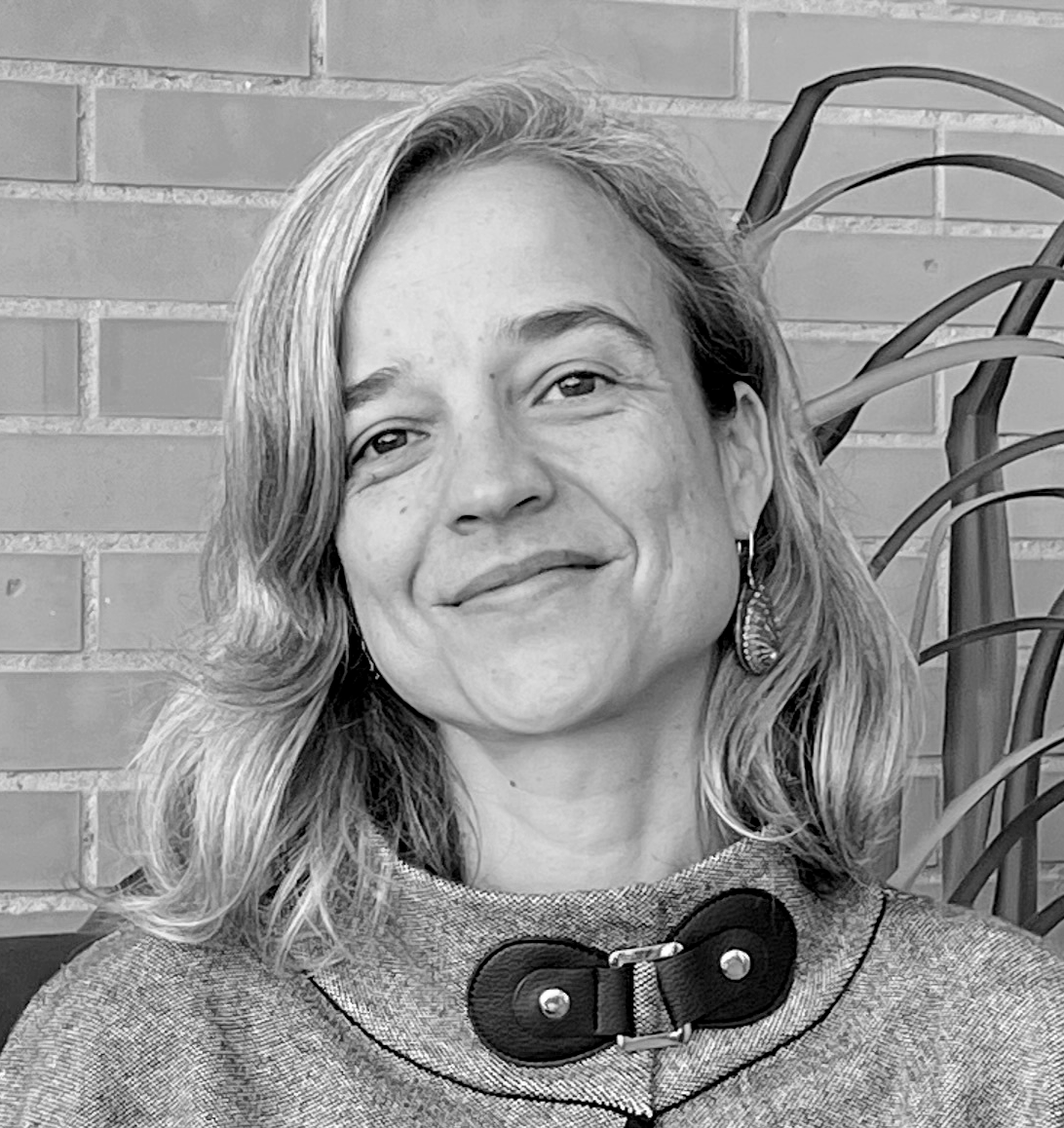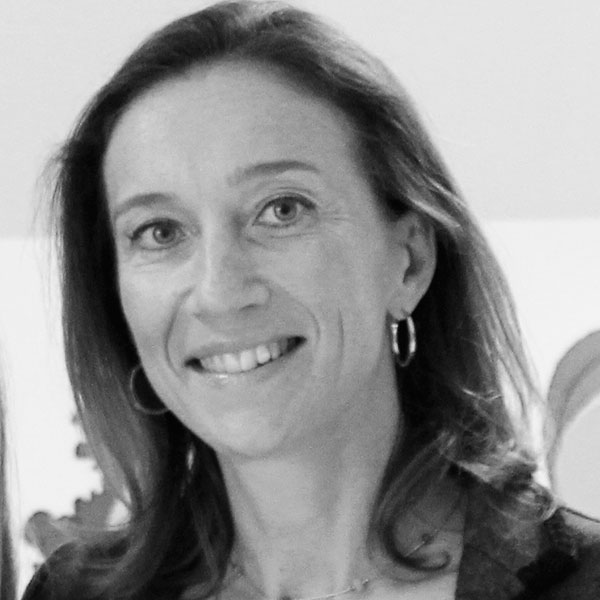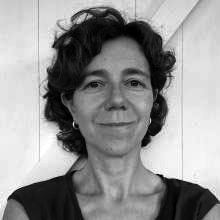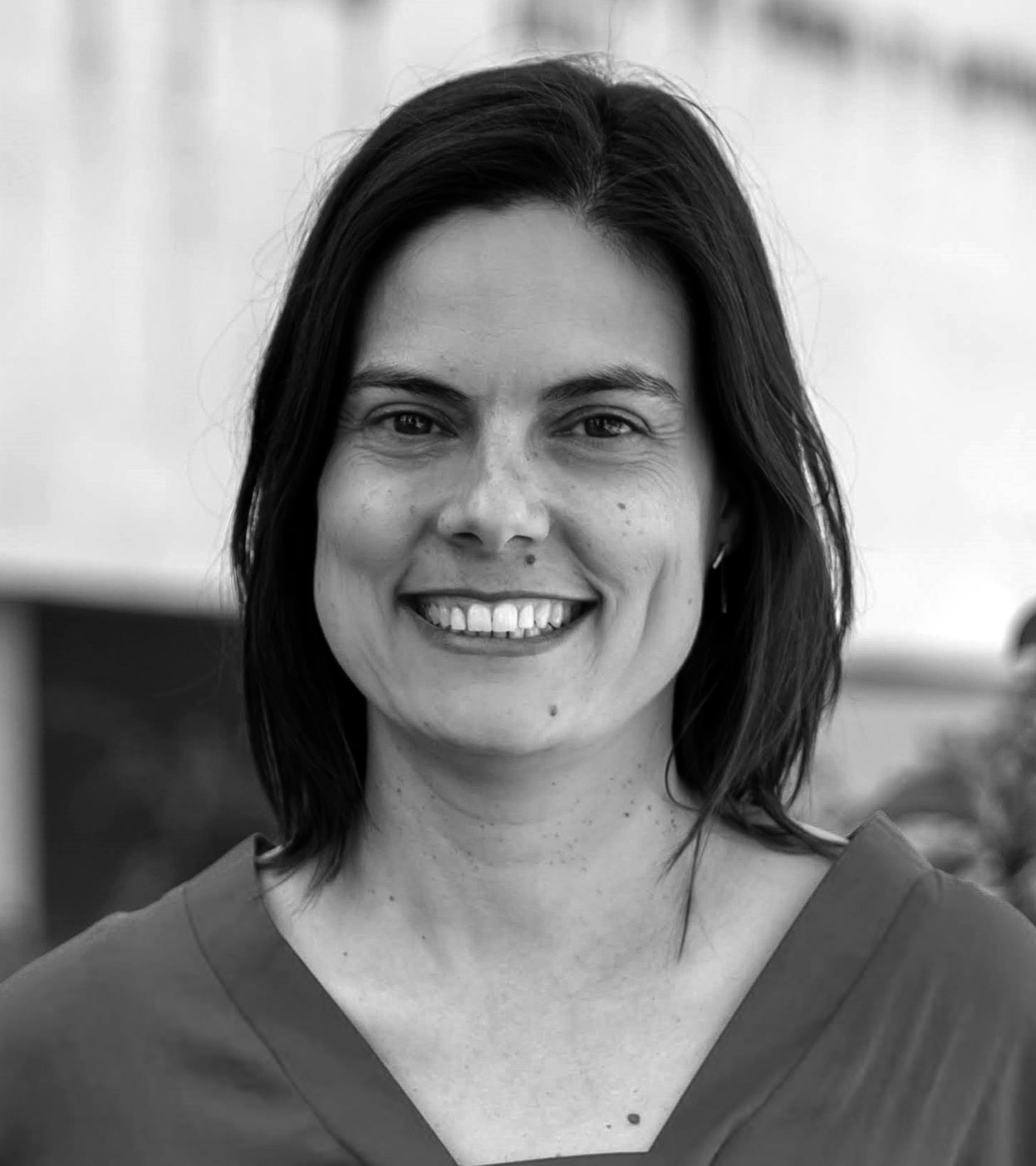Programme
14:30 – 15:00 Registration
15:00 – 15:15 Opening Ceremony
Session 1: Genomics, Epigenetics and Evolution
Moderators: M Teresa Roldán (UCO) and Vanessa Valdiglesias (UDC)
15:15 – 16:00 Keynote Lecture: Aurora Ruiz-Herrera (Universitat Autònoma de Barcelona): Genome plasticity in three dimensions: exploring the dynamics of chromatin folding across time-scales and cell types
- 16:00 – 16:15 Hannes Van Goethem (UAB–ES): Nanoplastics in gastrointestinal microbiota of Mus musculus
- 16:15 – 16:30 Zhou Keer (UAB–ES): Teflon® micro- and nanoparticles in gastrointestinal microbiota
- 16:30 – 16:45 Raquel Egea (UAB–ES): Single-cell transcriptomics in nanoplastic-exposed human blood
16:45 – 17:30 Coffee break & Educational resources
Interactive activities: Alba García-Rodríguez
Session 2: DNA Damage and Repair, Genome Instability and Human Disease
Moderators: María Sierra (UNIOVI) and Blanca Laffon (UCO)
- 17:30 – 17:45 Isabel Gaivão (UTAD–PT): DNA repair mechanisms in equines
- 17:45 – 18:00 Yolanda Lorenzo (UO–Norway): APE1 expression in corneal and limbal epithelium
- 18:00 – 18:15 Elisabet Teixidó (UB–ES): Alkaline comet assay for photogenotoxicity prediction
- 18:15 – 18:30 Adriana Rodriguez-Garraus (UNAV–ES): Potassium bromate as positive control in comet assay
- 18:30 – 18:45 Cristina Camps (UAB-IRSP–ES): DNA damage response inhibitors in cancer therapy
19:00 – 19:30 Assembly of New Investigators
20:00 Social Activity & Dinner – New Investigators
Session 3: Health Hazard Assessment of Emerging Pollutants
Moderators: Alba Hernández (UAB) and Antonio Guzmán (Alexion)
9:00 – 9:45 Keynote Lecture: Mariona Bustamante (ISGlobal): Chemical exposure in early-life: epigenetic mechanisms and genetic susceptibility
- 9:45 – 10:00 Silvia Gascón (UNAV–ES): Genotoxic characterization of emerging mycotoxins in vitro
- 10:00 – 10:15 Natalia Fernández-Bertólez (UDC–ES): Biocompatibility and antioxidant potential of
nanoceria in human nervous cells - 10:15 – 10:30 Natasha Miranda (UTAD–PT): Biological impact of the sweetener sucralose – an in
vivo study in Drosophila melanogaster - 10:30 – 10:45 Marina Pérez (AIMPLAS–ES): In vitro bioassays as a tool to evaluate risk assessment of micro and nanoplastics
- 10:45 – 11:00 Doaa Abass (UAB–ES): Intestinal impact of PTFE-derived micro- and nanoplastics
- 11:00 – 11:15 Joan Martín-Pérez (UAB–ES): Size-dependent effects of polystyrene panoplastics on
human primary endothelial cell function
11:15 – 11:45 Coffee break
Session 4: Human Biomonitoring I
Moderators: Ricard Marcos (UAB) and Natalia Fernández (UCO)
11:45 – 12:30 Keynote Lecture: Blanca Laffon (UDC–ES): Physiopathology of frailty in older adults: development of biomarkers for its early identification
- 12:30 – 12:45 Carlota Lema (UDC–ES): Inflammation and frailty: association of immunological
biomarkers with physical and cognitive impairment in older adults - 12:45 – 13:00 Sofía Sierra (PUJ–Colombia): Analysis of DNA damage by e-cigarettes exposure in a
youth population - 13:00 – 13:15 Arnau Rocabert (UAB–ES): Integrating microbiota profiling in biomonitoring of
occupational exposure to micro- and nanoplastics
13:15 – 14:45 Lunch Break
15:00 – 16:30 Social Event – Visit to Hospital Sant Pau
Session 5: New Approach Methodologies in Toxicity and Risk Assessment
Moderators: Susana Pastor (UAB) and Amaya Azqueta (UNAV)
16:30 – 17:15 Keynote Lecture: Anna Laromaine (ICMAB-CSIC): Exploiting C. elegans to assess nanotechnology and nanomedicine
- 17:15 – 17:30 Myriam Benito (UNAV–ES):
17:30 – 18:15 Coffee break & Educational resources
Interactive activities: Alba García-Rodríguez
- 18:15 – 18:30 Javier Gutiérrez (UAB–ES): Long-term exposure to secondary polyethylene
terephthalate nanoplastics induces carcinogenesis in vitro - 18:30 – 18:45 Irene Barguilla (UAB–ES): Stem cell models to study long-term effects of PS and PET
nanoplastics: a focus on cell transformation - 18:45 – 19:00 Claudia Anguita (UAB–ES): Establishment of a human pulmonary in vitro co-culture
model for nanoplastic toxicological assessment: Calu-3 and THP-1 macrophages
20:00 Social Event – Dinner
Session 6: Ecotoxicity and Reproductive Toxicity
Moderators: Óscar Herrero (UNED) and Isabel Gaivão (UTAD)
9:00 – 9:45 Keynote Lecture: Nerea Roher (Universitat Autònoma de Barcelona): Under the Surface: how the cells from aquatic organisms respond to Polystyrene Nanoplastic Exposure
- 10:00 – 10:15 Laura Rubio (UAB–ES): Quality evaluation and review of in vivo mammalian
reproductive and developmental toxicity studies on micro- and nanoplastics - 10:15 – 10:30 Aleix Clarà (UAB–ES): The impact of nanoplastics on mammalian reproductive
function: an in vitro study with gametes, embryos and placental cells - 10:30 – 10:45 Mohamed Alaraby (UAB–ES): Reproductive toxicity of nanomaterials. Silver
nanoparticles and Drosophila as models
10:45 – 11:15 Coffee break
Session 7: Human Biomonitoring II
Moderators: Antonio Guzmán (Alexion) and Adriana Rodríguez (UNAV)
- 11:15 – 11:30 Kevin Barrios (UAB–ES): Biomonitoring of human population exposed to micro- and
nanoplastics in clear aligners orthodontic treatment. Effects on the oral microbiota: A
preliminary sequencing approach using MinION - 11:30 – 11:45 Urszula Bondarow (UAB–ES): Assessment of micro- and nanoplastic exposure risks
using clear dental aligners as a model and salivary white blood cells as biomarkers - 11:45 – 12:00 Jéssica Arribas (UAB–ES): Genotoxic damage, immunotoxicity, gene expression
signature, and circulating miRNAs as biomarkers of nanoplastic exposure: A pilot study in
human-exposed population
Session 8: Summarize your PhD Thesis
Moderators: Raquel Egea (UAB) and Laura Rubio (UAB)
- 12:00 – 12:10 PhD thesis summary: Myriam Benito (UNAV–ES)
- 12:10 – 12:20 PhD thesis summary: Natasha Gomes (UTAD–PT)
- 12:20 – 12:30 PhD thesis summary: Silvia Gascón (UNAV–ES)
- 12:30 – 12:40 PhD thesis summary: Javier Gutiérrez (UAB–ES)
- 12:40 – 12:50 PhD thesis summary: Carlota Lema (UDC–ES)
- 12:50 – 13:00 PhD thesis summary: Joan Martín (UAB–ES)
13:00 – 13:30 Assembly of members
13:30 – 13:45 Awards and Closing
Invited Speakers

Dra. Aurora Ruiz-Herrera
Universitat Autònoma de Barcelona (Spain)
Dr. Aurora Ruiz-Herrera is an Associate Professor at the Universitat Autònoma de Barcelona (UAB) and the Coordinator of the Genome Integrity and Reproductive Biology Group. Her research focuses on the structural, functional, and evolutionary aspects of genome organization, with a particular emphasis on the germ line and its role in genetic information transmission.
She completed her PhD in Biology at UAB in 2003. Dr. Ruiz-Herrera has mentored over 60 graduate students and participated in more than 30 research projects. She has co-authored over 60 articles in prestigious journals and contributed to more than 140 presentations at national and international conferences.
Dr. Ruiz-Herrera has been involved in teaching since 1998 and held various institutional responsibilities, including coordinating postgraduate courses at UAB.

Dra. Blanca Laffon
Universidade da Coruña (Spain)
Dr. Blanca Laffon is a Full Professor of Psychobiology at the University of A Coruña. She graduated with honors in Pharmacy from the University of Santiago de Compostela in 1996 and earned her PhD in 2001, both with extraordinary awards.
Her research focuses on the biocompatibility and safety of nanomaterials and the study of frailty in aging.
With over two decades of academic experience, she has participated in around 25 research projects, authored approximately 130 research articles, and presented at numerous international conferences. Dr. Laffon has received multiple awards for her work and has held various prestigious fellowships. She has been recently elected as Numerary Academic of the Galician Royal Academy of Pharmacy.

Dra. Mariona Bustamante
ISGlobal (Spain)
Dr. Mariona Bustamante joined ISGlobal (former CREAL) in 2010 as a postdoctoral researcher and now has a position as staff scientist in the area of molecular epidemiology.
Her background is in biochemistry and human genetics. Her PhD focused on the identification of genetic variants associated to complex diseases and the functional validation in in vitro models. Currently, she investigates the genetic causes of complex phenotypes and their interaction with environmental exposures.
In addition, she studies the molecular mechanisms underlying the effects of the exposome on health. Their position as staff scientist gives her a transversal view of the cutting edge omics methods.

Dra. Anna Laromaine
Institut de Ciència de Materials de Barcelona, ICMAB-CSIC (Spain)
Dr. Anna Laromaine is a researcher at the ICMAB-CSIC within the Group of Nanoparticles and Nanocomposites. Her scientific work is interdisciplinary encompassing chemistry, materials science and biology, and inspired by her work experience at world-leading institutions across three different continents. Her research steps are intrepid, innovative, and solid from synthesis of materials to cell cultures, pushing the state of the art while blending disciplines. She strongly believes in the power of scientists to speed the translation of materials to a final product and its potential to drive world-economies.
Currently, her research is divided into two parts: 1) the production of bacterial cellulose materials and their nanocomposites, and 2) the evaluation of nanoparticles using different approaches such as cell cultures and the nematode Caenorhabditis elegans.

Dra. Nerea Roher
Universitat Autònoma de Barcelona (Spain)
Dr. Nerea Roher is a researcher at the Universitat Autònoma de Barcelona (UAB), specializing in the immunology of aquatic organisms. She holds a Ph.D. in Biochemistry from UAB and has extensive expertise in immunology and microbiology, with a particular focus on developing antiviral vaccines for aquatic species. Her research explores how environmental factors shape the immune system.
As the director of the Institut de Biotecnologia i Biomedicina, Dr. Roher leads innovative research projects at the forefront of biotechnology and biomedicine. Her work significantly contributes to sustainable development goals.

